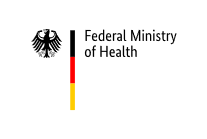MoMo 2.0 Study
The Motor Module (MoMo) originated as a sub-module of the nationwide German health Interview and Exmanination Survey for Children and Adolescents (KiGGS) of the Robert Koch Institut (RKI) and has been conducted since 2003. For 20 years, the MoMo data have formed a unique basis for evidence-based health policy action and health policy decisions. A continuation of the study is of high scientific and societal relevance in view of current developments (including COVID-19 pandemic, digitalization, social inequality, migration). Based on a resolution of the German Bundestag, we are therefore now conducting the study under the name MoMo 2.0 in even more locations in Germany since October 2022.
Funded by the German Federal Ministry of Health, the aim of MoMo 2.0 is to investigate the course and development of physical fitness and activity behavior of the population living in Germany over a longer period of time. These results help to improve the health situation in Germany.
Research into resources and risks developed over the life course, as well as the effects of critical life events, new technologies and societal changes on health, is only possible with the help of continuously conducted cross-sectional and longitudinal studies. This requires proven technical and logistical expertise, an efficient infrastructure, and above all standardized and high-quality methods. In Germany, these prerequisites were created within the framework of the MoMo study in the years 2003 to 2022. For the first time, a representative data set on motor performance, physical activity and health of children and adolescents was created. By collecting nationally representative data, changes can be documented, new trends identified, influences of historical events and environmental factors established, and relationships between socioeconomic and biomedical parameters analyzed in depth.
The goal of MoMo 2.0 (2022-2025) is to conduct a fourth nationally representative data collection (wave 4) after baseline among children and adolescents aged 4 to 17 years and analyze it against the background of current social events. The targeted sample size is about 4,800 participants (N=2,800 cross-sectionally, N=2,000 longitudinally).
The study is conducted as a joint project of four universities (Karlsruhe Institute of Technology (KIT), Karlsruhe University of Education (PH), University of Konstanz, Humboldt University of Berlin (HUB)), each with its own research focus within the study. KIT's focus is on the study of physical activity, physical health and health behavior. PH Karlsruhe is concerned with the recording and investigation of motor performance, anthropometry and physical health. The object of study of the University of Konstanz includes the determinants of social inequality, such as migration and education. The HUB is responsible for the statistical analysis of the collected data.



